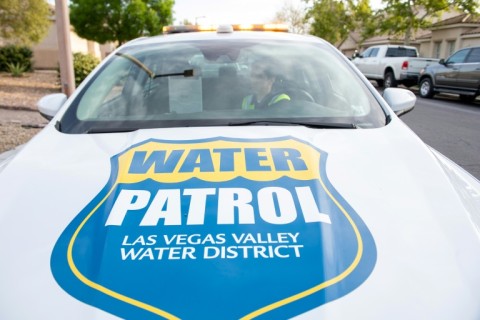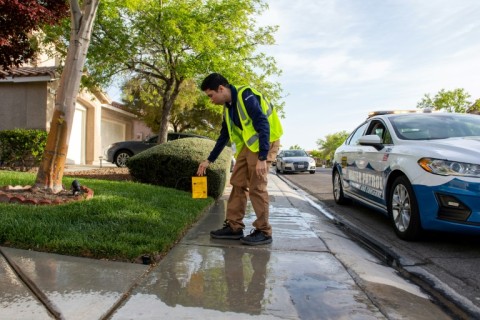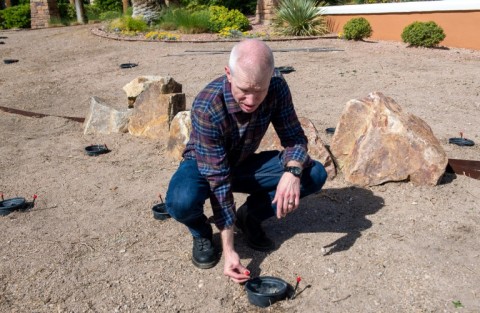
LAS VEGAS - Known around the world as an oasis of overindulgence, the desert city of Las Vegas has emerged as a surprising model of austerity and prudence when it comes to water.
Some 2.3 million people live in the arid Las Vegas Valley, and 40 million tourists are drawn each year to its giant casinos and hotels.
Yet because Nevada is allowed to use less than two percent of the drought-hit Colorado River's total water, it has taken drastic action, from banning lawns to capping the size of swimming pools.
"Las Vegas has done a very good job selling the facade of excess and decadence," said Bronson Mack, Southern Nevada Water Authority spokesman.
"But the reality is that our community is extremely water-efficient."
Now, at a time when federal officials are mulling mandatory cuts across the parched US West, Las Vegas "has become a water conservation rock star" and "a model for cities" across the region, said researcher Brian Richter.
- 'Water cops' -
Out in the sprawling suburbs, early morning "water patrol" cars with flashing lights crawl the streets, hunting for broken sprinklers and leaky hoses.

Investigators film any violation, before planting a warning flag on the lawn for first-time offenders, or logging a fine for repeat transgressors.
Some homeowners become "a bit frustated" to find "water cops" on their lawn before dawn, said investigator Cameron Donnarumma, but most are cooperative.
Indeed, his work relies on residents reporting their more water-profligate neighbours via an app, which daily yields 20-50 home visits by patrols.
"People recognise when you land in Las Vegas in the Mojave Desert it is a very dry place," said Mack. "It is a different environment from where you came from."
By 2027, any watering of "non-functional" grass -- there purely for aesthetic rather than recreational reasons -- will be banned, except at single-family residences.

- 'Political' -
A recent rule limiting new swimming pools to 600 square feet (56 square meters) has infuriated contractors like Kevin Kraft, who designs giant pools for wealthy homeowners.
The industry was not consulted until the legislation was a "done deal," and Kraft says a cap based on percentage of a home's total lot size would save more water.
Nevada officials were "under the gun" from the federal government and "had to show savings," he said.
"A lot of it is political," he added.
The rules limiting Nevada's access to the Colorado River, which supplies water to 40 million people including California's cities and giant farms, were drawn up in 1922.

Now, with water levels plummeting at nearby Lake Mead -- the nation's largest reservoir -- federal officials are planning steep cuts across the West.
These will either be a uniform percentage reduction for all states, or by "senior rights" -- basically, who got there first, which would put Nevada near the back of the line.
Mack said Las Vegas's record of water reductions "could actually be a challenge for us in the future" if mandated cuts are based on current usage levels.
Las Vegas "should get credit for the amount of water that we have already saved in this community over the past 20 years," he said.
"Other communities are just now starting to step up to the conservation plate."

